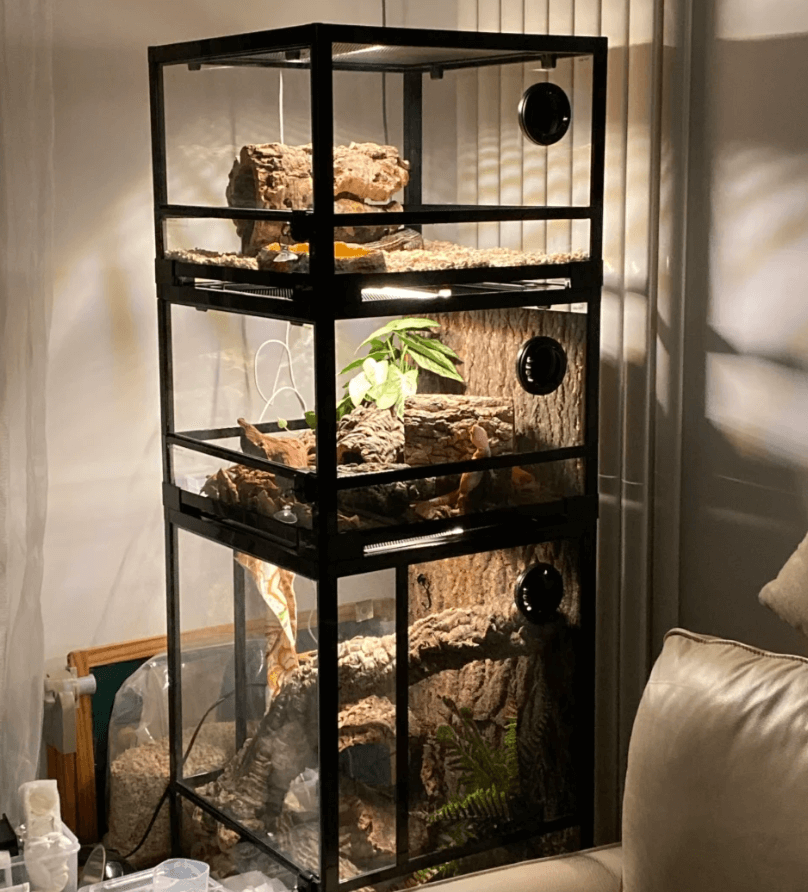
How to Care for Your Reptile When You're Away: Essential Tips for Pet Owners
Share
Going on vacation or a business trip doesn't have to mean stress for your scaly friend. Proper preparation ensures your reptile stays healthy and happy while you're gone. Here's a comprehensive guide to reptile care during your absence.
1. Temperature & Humidity Control
- Critical for survival: Most reptiles require specific temperature ranges (e.g., 22-26°C for crested geckos, 28-32°C for bearded dragons).
- Power backup: Use a thermostat-controlled heater or heat lamp. Consider a UPS (uninterruptible power supply) to prevent temperature drops during outages.
- Humidity maintenance: For tropical species, mist enclosures daily or use an automatic misting system. Add moisture-retaining substrates like sphagnum moss.
2. Feeding Solutions
- Pre-trip feeding: Feed your reptile a full meal 1-2 days before leaving to ensure digestion.
-
Food options:
- Short trips (1-3 days): Leave pre-portioned dry food (e.g., pellets, crickets in a secure container).
- Longer trips (4+ days): Invest in an automatic feeder or ask a trusted sitter to provide fresh food.
- Avoid perishables: Never leave fresh fruits/vegetables for extended periods to prevent spoilage.
3. Hydration Strategies
- Water bowls: Ensure a shallow, stable water dish is always available. For arboreal species, place bowls at multiple levels.
- DIY automatic waterers: Use a gravity-fed system (e.g., a water bottle with a sipper tube) or a drip system for larger enclosures.
4. Enclosure Safety
- Secure the habitat: Check for escape routes (loose lids, gaps) and ensure decorations are stable to prevent injury.
- Clean before leaving: Remove uneaten food and waste to avoid mold or pest issues.
5. Emergency Contingencies
- Trusted sitter: Provide detailed care instructions and contact information for your vet.
- Monitor remotely: Use a smart thermostat or camera to check temperature and behavior.
6. Post-Return Care
- Rehydrate first: Offer water immediately upon your return.
- Gradual feeding: Start with small meals to avoid digestive stress.
- Check health: Look for signs of dehydration, weight loss, or lethargy.
Final Tips
- Avoid long-term neglect: While reptiles can survive longer without food than mammals, extended absences (over 2 weeks) are risky.
- Species-specific needs: Research your reptile's requirements (e.g., UVB lighting for turtles, hiding spots for snakes).
Featured Products:
